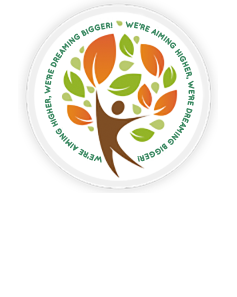Maths
At Malorees, we understand the importance of Mathematics providing a foundation for understanding the world. We recognise the importance of children being able to reason mathematically, develop an appreciation of the beauty and power of mathematics, and a sense of enjoyment and curiosity about the subject. We carefully aim to ensure that children gain a deep, conceptual understanding of a range of mathematical ideas, to ensure that our children can recognise relationships between current and prior learning.
At Malorees, we follow White Rose Maths schemes of learning which is designed to support a mastery approach to teaching and learning, as well as to support the aims and objectives of the National Curriculum. We believe that children will acquire a deep and sustained understanding, if they are able to explore concepts using concrete apparatus and pictorial representations. Teaching in this way allows children to have an embedded understanding of each strand of mathematics, so that as they progress through the key stages, they become confident, competent, well-rounded mathematicians. This equips children with the skills to choose appropriate methods for efficiency once they move to upper key stage 2.
Our aims for pupils at Malorees are:
- An understanding of the important mathematical concepts and an ability to make connections.
- A broad range of skills in using and applying mathematics.
- Fluent knowledge and recall of number facts and the number system.
- The ability to show initiative in solving problems in a wide range of contexts, including the new or unfamiliar.
- The ability to think independently and to persevere when faced with challenges.
- To embrace the value of learning from mistakes and false starts.
- The ability to articulate mathematical reasoning, generalisations and make sense of solutions.
- Fluency in performing written and mental calculations and mathematical techniques.
- A wide range of mathematical vocabulary.
- A commitment to and enthusiasm in the subject.
Curriculum Overview
|
Maths White Rose |
Autumn1 Y1- Place Value Number - Adding and subtraction |
Autumn 2 Y1-Geometry – Shape, number – Place Value
|
Spring 1 Y1- Number – Addition and Subtraction, multiples |
Spring 2 Y1- Measurement – Length and height, weight and volume |
Summer 1 Y1- Multiplication and division, fractions |
Summer 2 Y1-Measurement - Money, Measurement – Time |
|
Y2-Place value , Addition and Subtraction |
Y2- Addition and subtraction Properties of shape |
Y2- Money, Multiplication and Division, Statistics |
Y2- Measurement -length, Height ,weight and volume Mass, capacity & temp |
Y2- Fractions and Time. |
Y2-Statistics Geometry – position and direction |
|
|
Y3- Number – Place Value Number – Addition and Subtraction |
Y3- Number – Multiplication and Division |
Y3- Number - Multiplication and Division Measurement: Money Statistics |
Y3- Measurement: length and perimeter Number - Fractions |
Y3- Number – fractions Measurement: Time Geometry – |
Y3- Properties of Shapes Measurement: Mass and Capacity |
|
|
Y4- Number – Place Value Number- Addition and Subtraction |
Y4- Measurement- Length and Perimeter Number- Multiplication and Division |
Y4- Number- Multiplication and Division |
Y4- Measurement- Area Fractions Decimals |
Y4- Decimals Measurement- Money Time Statistics |
Y4- Properties of Shape Geometry- Position and Direction |
|
|
Y5- Number – Place Value Number – Addition and Subtraction |
Y5- Statistics Number – Multiplication and Division Perimeter and Area |
Y5- Number – Multiplication and Division |
Y5- Number – Fractions Number – Decimals & Percentages |
Y5- Number – Decimals Geometry- Properties of Shapes Geometry |
Y5-- Position and Direction Measurement- Converting Units Measures Volume |
|
|
Y6-Number- Place Value Number- Addition, Subtraction, |
Y6- Multiplication and Division Fractions Geometry- Position and Direction |
Y6- Number- Decimals Number- Percentages Number- Algebra |
Y6- Measurement Converting units Measurement Perimeter, Area and Volume Number- Ratio |
Y6- Geometry- Properties of Shapes
|
Y6- Problem solving Statistics
|
